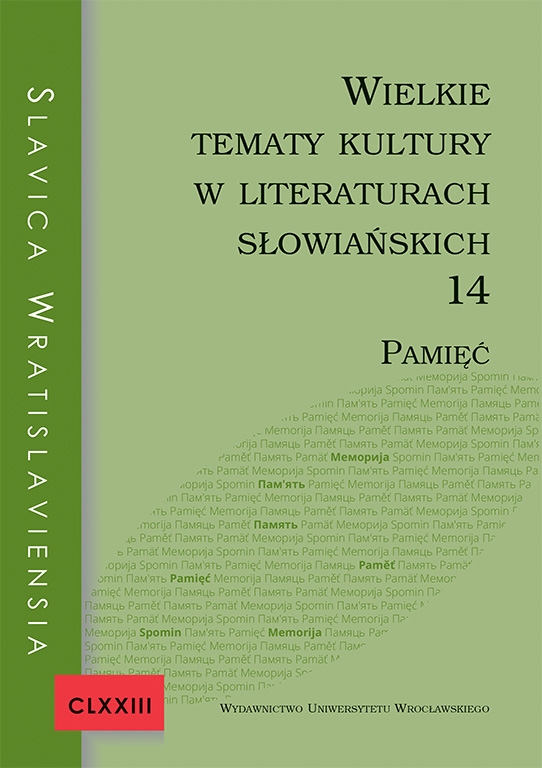

Eastern Slavic Literature

The article explores the features of the concept of memory functioning in selected contemporary Ukrainian novels. Analyzing the works of Vasyl Gabor, Volodymyr Nazarenko, Andriy Sodomora, Halyna Pahutiak and Serhiy Hrabar the author of the article argues that the concept of memory is presented in Ukrainian fiction in many ways: as individual memory, autobiographical, episodic, associative, genetic — and in each case has its own specifics of artistic depiction. The concept of memory emerges as an integral part of the picture of the world. It is characterized by semantic ambiguity, associative immersion and the plurality of interpretations, forming different semantic models: memory–remembrance, memory–home, memory–life, memory–time, memory–eternity, etc., as well as oppositions memory–“unmemory”, oblivion, amnesia. It is noted that the concept of memory is associated with archetypal images such as the concepts of the garden (Gabor) and home (Nazarenko), which acquire the value of memory locations associated with individual and autobiographical memory of story-tellers.